March 16
Maxim Gorky
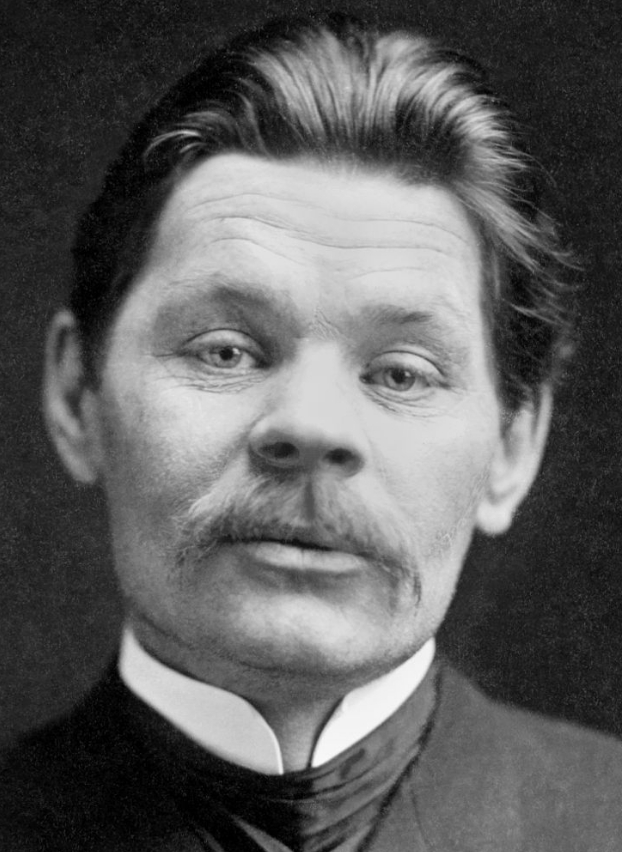
On this date in 1868, Maxim Gorky, né Alexei Maximovitch Peshkov, was born in Nizhny Novgorod, Russia. After his father died when he was 5, he was sent to live with his maternal grandparents. His grandfather made him quit school at age 8 to go to work. At 12 he ran away and endured so many bitter hardships trying to survive that he later adopted the name “Gorky,” which means “The Bitter One.”
After trying unsuccessfully at age 21 to commit suicide by shooting himself, he suffered from lifelong bouts of tuberculosis as the result of damage to his lungs. Gorky undertook a two-year walking journey as a “tramp,” becoming familiar with Russia’s oppressed underclass. At 24 he became a reporter and began writing sympathetically about the outcasts, derelicts, petty criminals and prostitutes he had encountered, thus becoming a folk hero. His first collection of short stories was published to great acclaim in 1898.
Anton Chekhov befriended Gorky, introducing him to theatrical producers, who invited him to write his first plays. “The Smug Citizen” (1902), created an uproar, although “The Lower Depths” (1902) has endured. He was invited by a host of writers and dignitaries to speak in the U.S. in 1906, where the New York World newspaper pilloried him for traveling with the actress Maria Andreyeva, his common-law wife. Gorky had been amicably separated from his first wife for years but his Finnish divorce wasn’t recoginzed by the Russian Orthodox Church. Many sponsors withdrew their support, although some, such as H.G. Wells, stood by him.
He was married to Yekaterina Peshkova from 1896 to 1903 and to Andreyeva from 1903 to 1919. He had three sons, Zinovy, Maxim and Yuri, and two daughters, Yekaterina and Catherine.
Gorky, sympathetic to the Marxist cause to overthrow the government, was periodically jailed and finally exiled for several years. Critical of the Bolsheviks and Lenin, he went on a self-imposed exile throughout the 1920s, until one of his harshest critics, Stalin, invited him home. Although Gorky was criticized for endorsing some of Stalin’s policies, he is credited with saving the lives of several writers.
Gorky’s books and plays include Summer Folk (1903), Barbarians (1906), Enemies (1906), The Last Ones (1908), The Counterfeit Coin (1926), Yegor Bulychov (1931), and an autobiographical trilogy, My Childhood (1914), In the World (1916), and My Universities (1923).
In Maxim Gorky: A Political Biography (1999), Tova Yedlin wrote: “Gorky had long rejected all organized religions. Yet he was not a materialist, and thus he could not be satisfied with Marx’s ideas on religion. When asked to express his views about religion in a questionnaire sent by the French journal Mercure de France on April 15, 1907, Gorky replied that he was opposed to the existing religions of Moses, Christ, and Mohammed.”
The circumstances of his death in 1936 were murky. While it is possible he may finally have succumbed to tuberculosis or natural causes, he may also have been ordered killed by Stalin. (D. 1936)
“Gorky hated religion with all the passion of a former God-builder. Probably no other Russian writer … expressed so many angry words about God, religion, and the church.”
— Evgeniĭ Aleksandrovich Dobrenko, "Political Economy of Socialist Realism" (2007)
James Madison
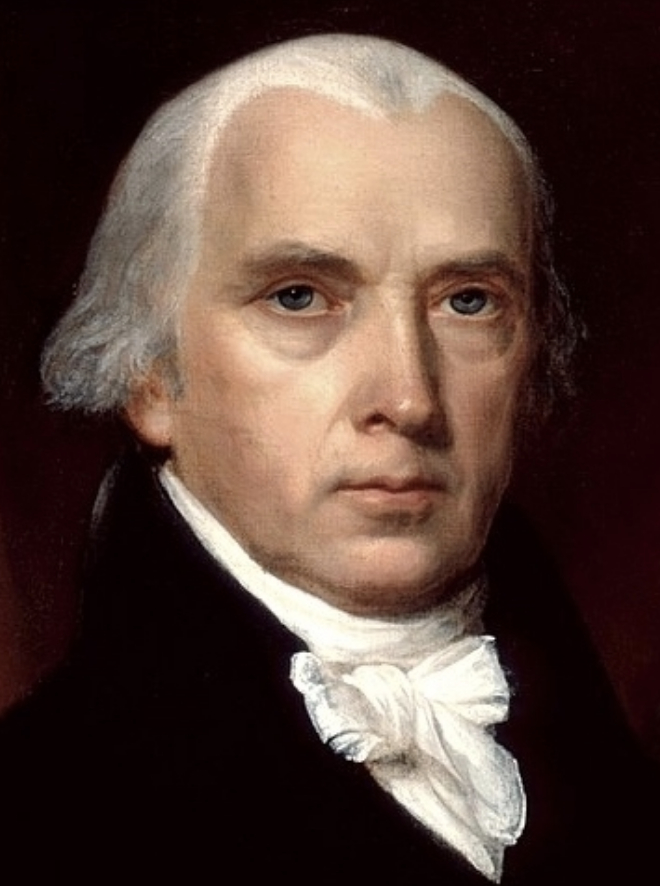
On this date in 1751, James Madison Jr. was born near Port Conway, Va., to James and Nelly Conway Madison. A deist, he became the primary author of the secular U.S. Constitution and Bill of Rights and the fourth U.S. president. Madison was elected to the first House of Representatives, was secretary of state under Thomas Jefferson and served as president from 1809 to 1817.
Baptized Anglican, he contemplated the ministry as a career. After graduating from the College of New Jersey (later renamed Princeton), Madison was appointed a delegate to the Virginia state convention. There he was responsible for the adoption of a freedom of conscience clause in the state constitution. “Religious bondage shackles and debilitates the mind and unfits it for every noble enterprise, every expanded prospect,” Madison wrote William Bradford on April 1, 1771.
After being elected to the Virginia Legislature, his famous “Memorial and Remonstrance” defeated a bid to force mandatory tithing in 1785. In it, he stated “it is proper to take alarm at the first experiment on our liberties.”
“During almost fifteen centuries has the legal establishment of Christianity been on trial. What have been its fruits? More or less in all places, pride and indolence in the Clergy, ignorance and servility in the laity, in both, superstition, bigotry and persecution.” (Memorial and Remonstrance Against Religious Assessments, June 20, 1785)
His “Detached Memorabilia,” written between 1817 and 1832, revealed his regrets over the appointment of chaplains to the two houses of Congress. Madison called it “a palpable violation of equal rights, as well as of Constitutional principles.” He equally argued against chaplains in the military and religious proclamations by the president, writing that such acts “imply a religious agency.”
In a letter to Louisiana attorney and legislator Edward Livingston, Madison wrote: “Every new & successful example therefore of a perfect separation between ecclesiastical & Civil matters is of importance. And I have no doubt that every new example will succeed, as every past one has done, in shewing that Religion & Govt. will both exist in greater purity, the less they are mixed together.” (July 10, 1822)
Madison married Dolley Payne Todd, a widow and 17 years his junior, in 1794, helping raise her son Payne. In 1826, after Jefferson’s death, Madison was appointed as rector of the University of Virginia. He retained the position as college chancellor for 10 years until his death at Montpelier at age 85 of congestive heart failure. (D. 1836)
“[T]he number, the industry, and the morality of the priesthood & the devotion of the people have been manifestly increased by the total separation of the Church from the State.”
— "The Writings of James Madison, Vol. VIII: 1808-1819," ed. Gaillard Hunt (1908)
Rosa Bonheur
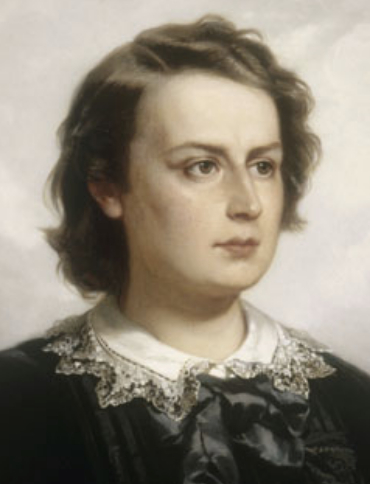
On this date in 1822, painter Marie-Rosalie Bonheur was born in Bordeaux, France, to a nominally Jewish family. All four children in the family became artists. Inspired by George Sand, with whom she was philosophically attuned, Bonheur started dressing in boys’ clothes in order to study animal anatomy, a sartorial habit of freedom she never abandoned. She visited slaughterhouses and also sketched at the horse market. Her painting, The Horse Fair, 1853, made her an international celebrity.
Bonheur was known for her unsentimental and realistic renderings of animals. She was exhibited regularly at Paris salons and became the first woman to receive the Grand Cross of the Legion of Honor. She had two female partners. She grew up with Nathalie Micas and then lived with her for 40 years. The American portraitist Anna Klumpke came into her life after Micas died. Bonheur viewed womanhood as superior to anything a man could offer or experience and said the only males she had time for were the bulls she painted.
Georges Cain, a painter and contemporary of Bonheur, wrote that she was “a philosopher of pantheist leanings. These ideas she was able to reconcile with a deep reverence for the Divine and a hatred for what she called ‘the Jesuits.’ By birth a Catholic, she neglected all outward religious observance.”
In her will dated Nov. 9, 1898, she directed that she wanted no priest at her deathbed but in order to be buried with Micas, agreed to forgo a civil funeral if need be, Bonheur told Klumpke shortly before she died at age 77. The three of them are buried alongside each other in Père Lachaise Cemetery in Paris. Bonheur’s painting “Monarchs of the Forest” sold at auction in 2008 for just over $200,000. (D. 1899)
"Yet, though I make this concession as to my body, my philosophical belief remains unalterable."
— Bonheur agreeing to a church funeral so she could be buried with Nathalie Micas, "Reminiscences of Rosa Bonheur," ed. Theodore Stanton (1910)
Richard Stallman
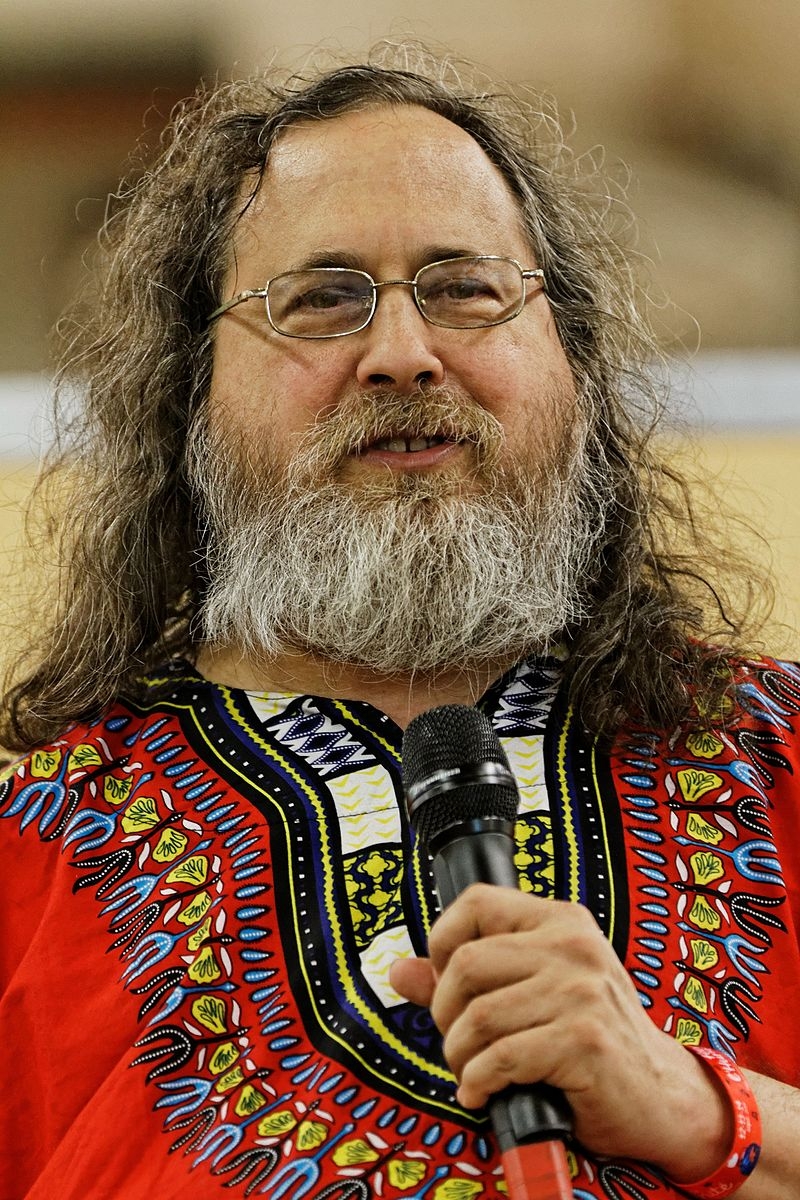
On this date in 1953, computer programmer Richard Stallman was born in New York City. Stallman is a leader in the software freedom movement. He graduated magna cum laude from Harvard with a degree in physics in 1974 and did graduate work at MIT. He has received many awards and several honorary doctorates, including from the University of Glasgow and Lakehead University in Canada. He is known for founding the GNU Project (GNU’s Not Unix) in 1983 while he was at MIT.
The GNU Project involves programmers working to create free software so a computer may run entirely on free software. The project met this goal in 1992 with Linux, a free operating system. The project continues to develop more software and advocate for free software, which is free to use, edit and distribute.
Stallman, based in Massachusetts, also promotes other issues, including medical marijuana, and supports the Green Party. He also has sported a button that reads “Impeach God” and identifies as an atheist. According to his website, Stallman was in agreement with FFRF’s challenge of President George W. Bush’s faith-based initiatives. “I think we have an excess of faith-based initiatives in recent years,” he wrote. (Stallman.org, Feb. 28, 2007.)
Photo by Thesupermat under CC 3.0.
“Religious people often say that religion offers absolute certainty about right and wrong; ‘god tells them’ what it is. Even supposing that the aforementioned gods exist, and that the believers really know what the gods think, that still does not provide certainty, because any being no matter how powerful can still be wrong. Whether gods exist or not, there is no way to get absolute certainty about ethics.”
— Stallman interview with Slashdot titled "Thus Spake Stallman" (May 1, 2000)
Jack Nichols
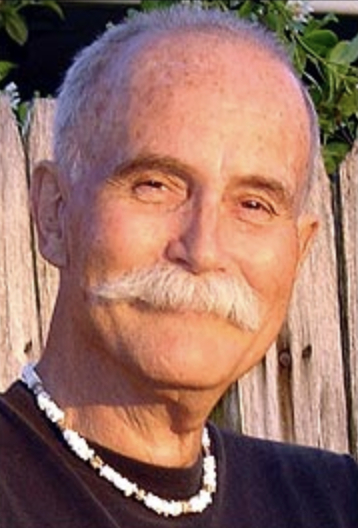
On this date in 1938, pioneering gay-rights activist John Richard “Jack” Nichols Jr. was born in Washington, D.C. He was raised in Chevy Chase, Md., and came out as gay to his parents as a teen. He lived with the uncle and aunt of Iran’s Shah Mohammad Reza Pahlavi for three years and learned Persian. He dropped out of school at age 12.
In 1961 he co-founded the Mattachine Society of Washington, a new branch of the gay civil rights organization originally started in 1950. In 1965 he formed a branch in Florida. He led the first gay rights march on the White House in 1965 and participated in the first of the “Annual Reminder” pickets, which took place at Independence Hall in Pennsylvania on July 4th each year from 1965-69.
In 1967 Nichols became one of the first Americans to talk openly about his homosexuality on national television when he appeared in the documentary “CBS Reports: The Homosexuals.” He disguised his identity because his father, an FBI agent, had allegedly threatened him with death if the government found out Jack was his son and he lost his security clearance. In 1968 he and his partner, Lige Clark, began writing a column called “The Homosexual Citizen,” which appeared in Screw magazine.
Nichols and Clark moved to New York City in 1969 and founded the weekly paper GAY, the first such publication. In 1975 Clark was shot under mysterious circumstances while on a road trip through Mexico, leaving Nichols bereft. His murderers were never apprehended. Nichols continued to write and engage in activism, serving as news editor of the San Francisco Sentinel and senior editor of Gay Today, an online news magazine. Nichols died of complications from cancer of the salivary gland. (D. 2005)
"I’m an agnostic. A non-believer, a heretic, an infidel. Well, you say, an agnostic stands somewhere between belief in God and non-belief. I stand closer to non-belief. When I think about my own religious nature, about spiritual matters, I never include the Sky God in my picture. I’m a humanist, which is like being a spiritualized atheist."
— Nichols' speech at a cancer survivor's meeting in Cocoa Beach, Fla., 1993; reprinted on GayToday.com.
Jorge Ramos
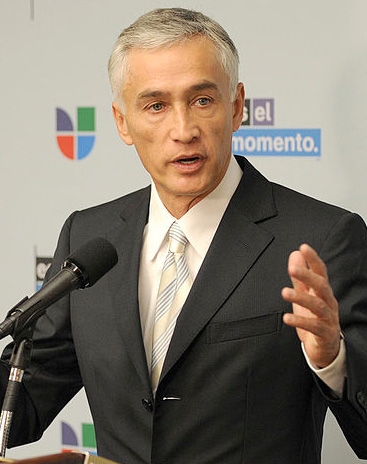
On this date in 1958, journalist and author Jorge Gilberto Ramos Ávalos was born in México City to Catholic parents. His father, with whom he became estranged because of his career choice, was an architect. After graduating from the Universidad Iberoamericana in communications, he worked as a TV reporter. When he was censored for criticizing the government, he came to the U.S. on a student visa and graduated from UCLA Extension in 1984. He later earned a master’s at the University of Miami and became a U.S. citizen in 2008.
Ramos, news anchor for Noticiero Univision since 1986, also hosts Univision’s weekly public affairs program “Al Punto” and Fusion’s “America with Jorge Ramos.” He’s written 10 books, has a syndicated column and actively promotes literacy in the Latino community. Ramos has received eight Emmys and numerous journalism awards and is consistently named as one of the most influential Latinos.
In an April 2014 Fusion column, he criticized Pope Francis for presiding over the canonization of Pope John Paul II, calling it “an insult to the countless people who have been sexually abused by Catholic priests. During his papacy, from 1978-2005, this newly anointed ‘saint’ remained silent as these predators targeted children in parishes around the world.” In an interview with CNN México posted on YouTube in 2013, Ramos was asked, “Pero lo crees en Dios?” (“Do you believe in God?”), he answered “no.”
At an August 2015 Donald Trump press conference in Iowa, Ramos tried to question Trump about immigration without being called on and was told several times to sit down and “Go back to Univision” before being escorted out by security. Ramos is based in Miami, is twice divorced and has a daughter, Paola, born in 1988, and a son, Nicolas, born in 1998.
Public domain photo by Bill Ingalls, NASA
TERRY GROSS: “So when you left Mexico and were faced with a different part of the Catholic Church, did you consider going back or were you just done?”
RAMOS: “No, I was done. I was done. … [O]nce I started going to college, and once I realized that nobody really knows if there’s afterlife, that there’s really no explanation, no religious explanation on why children die, why children have cancer, why all the cruelty in wars happen, why all these terrible things that I’ve seen as a journalist. Once you realize that there’s no religious explanation, then I really had no choice but to leave Catholic Church and I became an agnostic.”— Interview, NPR "Fresh Air" (Oct. 5, 2015)
Don Carpenter
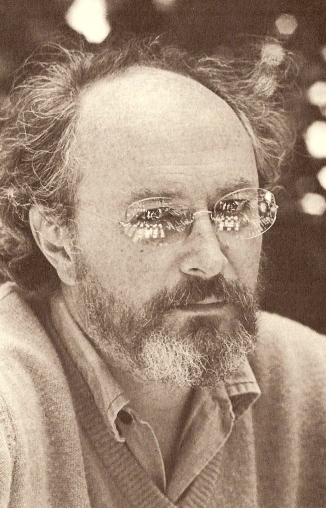
On this date in 1931, writer Don Carpenter was born in Berkeley, Calif. He completed high school in Portland, Ore., where his family moved in 1947. After graduating he enlisted in the Air Force and served during the Korean War, stationed in Kyoto, Japan, where he reported for the military newspaper Stars and Stripes. Upon returning home, Carpenter attended Portland State University, where he met Martha Marie Ryherd. They married in 1956 and moved to San Francisco. Carpenter received an M.A. in creative writing from San Francisco State University and taught English before becoming a novelist.
Carpenter’s writing is often perceived as cynical and ominous. He is best known for his novel Hard Rain Falling (1966), which follows the adventures of an orphan from Portland caught in a life of crime and punishment. The novel attempts to answer the question of our existence in a provocative way while additionally addressing issues of systematic conformity in America. Carpenter’s other works include Blade of Light (1968), Getting Off (1971) and From a Distant Place (1989).
He also spent some years in and out of Hollywood during which he wrote the cult film “Payday” (1973) about a rags-to-riches country singer ultimately driven to ruin. He later settled in Mill Valley, Calif., and became a full-time writer. Carpenter struggled with health issues, including tuberculosis and diabetes. He took his own life during the summer of 1995. His novel Friday at Enrico’s (2014), was published posthumously. It is a partially autobiographical take on the lunches he had in the 1970s with other notable authors. (D. 1995)
"I'm an atheist. I don't see any moral superstructure to the universe at all. I consider my work optimistic in that the people, during the period I'm writing about them, are experiencing intense emotion. It is my belief that this is all there is to it. There is nothing beyond this."
— Carpenter, quoted in a 1975 interview cited in The Rumpus online magazine (Nov. 2, 2009)
J.B. Stallo
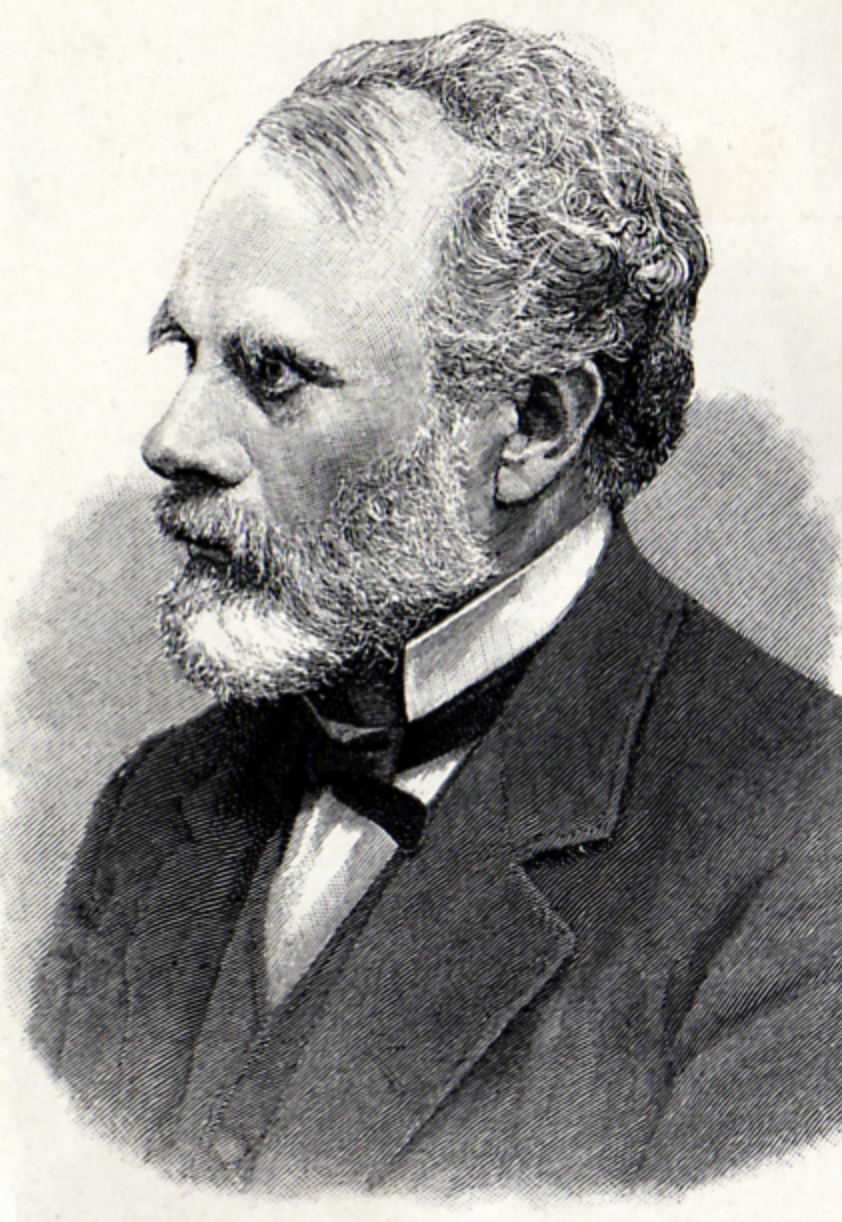
On this date in 1823, Johann Bernard Stallo, academic, religious dissenter, jurist, political philosopher and ambassador, was born in the Catholic village of Damme in Germany. He studied at home, as well as at a Catholic school. Since his family could not afford to send him to a gymnasium (a secondary school with an emphasis on preparing students for higher education), Stallo emigrated to the United States in 1839. He settled in Cincinnati, close to extended family, and met his wife Helena Zimmerman in 1850. The couple had 10 children, five of which survived childhood.
Stallo taught at numerous Jesuit institutions until he was admitted to the bar and began practicing law in 1849. Contradicting his involvement in religious schools, he played a critical role in the Cincinnati Bible War, a longstanding local “war” between Protestants, Catholics and Jews over the role of religion in their public schools (specifically whether or not the King James version of the bible should be used as reading material in classrooms). The decision by the board of education against using the bible paved the way for secularization in numerous other school districts.
Stallo also participated in the Liberal Republican movement of 1872, organized to oppose the reelection of President Ulysses S. Grant and his supporters. Before he retired to Florence, Italy, Stallo’s most famous works were published, such as The Concepts and Theories of Modern Physics (1882), which represents some of the early thought that led to the modern philosophy of science. (D. 1900)
PHOTO: Portrait of Stallo from the frontispiece of “The Concepts and Theories of Modern Physics.”
"Government can protect and help to maintain religion, as well as everything else which constitutes the life of the soul, only in one way — by guarding the freedom of its development. Whoever asks it to do more is seeking to convert it into an abominable engine of tyranny and oppression."
— Stallo, "State creeds and their modern apostles," lecture delivered in the First Congregational Unitarian Church, Cincinnati (April 3, 1870)
